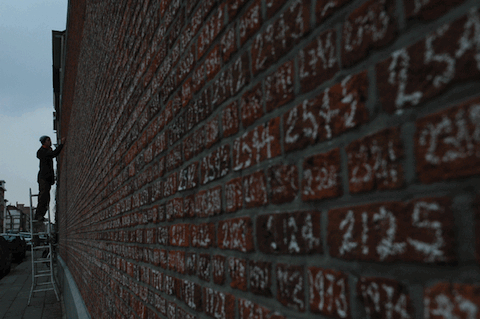
I dog-eared a whole bunch of pages in Mark Bowden’s Guests of the Ayatollah, including one featuring a passage about a longtime favorite topic: the psychology of captivity. I am a firm believer in the proposition that extended confinement can warp the mind in terrifying ways, which means I’m also a great admirer of men who manage to endure such torment. (Case in point.) Bowden briefly touches on a trick that such survivors employ, in his description of what Colonel Charles Scott discovered when cast into a cell where his fellow military officer, Colonel Thomas Schaefer, had recently been held:
Left alone, [Scott] found evidence that Schaefer had been in the room. It was lined with steel lockers and in one he found a slip of paper and a short pencil On the paper in handwriting he recognized as Schaefer’s—they had been passing notes for months—was a list of songs. Scott guessed that his air force colleague had been trying to memorize them. On another slip of paper was a rudimentary calendar, again in Schaefer’s handwriting. One of the lessons they had been taught in survival school was to keep track of time. From the scraps, Scott determined that Schaefer had been held in this freezing room for thirteen days, and that he had been moved three days earlier.
The ebb and flow of the days is something we rarely pay attention to, which is why time seems to march so quickly. But when you’re stripped of all freedom, keeping a running tally of the Earth’s rotation is one of the few ways you can exert some small measure of power. Amazing how little things like that can prevent the mind from unspooling.
(Image via Sam Hokins’ “The Seduction of Completion” project)


Like gas stations in rural Texas after 10 pm, comments are closed.